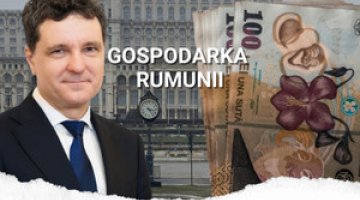The Social Democrats’ triumph in Romania
In the general elections held in Romania on 11 December, victory went to the Social Democratic Party (PSD, 45.5%), which won more than twice the votes of the centre-right National Liberal Party (PNL, 20%). The Social Democrats’ excellent result is primarily a result of their efficient election campaign, which was focused on socio-economic matters, together with the lack of a consistent message from the centre-right. The Social Democrats’ victory means a return to the system of ‘cohabitation’ between the left-wing government and the centre-right President, Klaus Iohannis, who is associated with the PNL. The first test of their cooperation will be the choice of the future prime minister. The President has announced that he will not nominate anyone to this position who has been convicted of a crime, which rules out Liviu Dragnea, the PSD’s leader. If the Social Democrats push for him to be appointed, that could lead to a serious constitutional crisis.
Regardless of the expected domestic political disputes, the replacement of the government will not bring about major changes in foreign policy. The Social Democrats and the centre-right have similar opinions on the key role of trans-Atlantic cooperation for the security of the country, and both favour the development of European integration in cooperation with the biggest countries in the EU.
The unsinkable Social Democrats, and the crisis of the centre-right
The elections were held a year after the Social Democratic government of Victor Ponta resigned, after mass protests against corruption and political elites triggered by a tragic fire in a Bucharest club. All the forces in parliament supported the technical government led by Dacian Cioloș, but the left took it upon itself to hold the government’s activities to account, and has used the last year to rebuild its public image. The Social Democrats’ campaign focused on socio-economic matters; they campaigned on raising the minimum wage, improving the quality of health care and education, and a radical simplification and reduction of taxes. At the same time, they stressed their attachment to conservative values, for example by supporting the idea of writing into the constitution the definition of marriage as a relationship between a man and a woman. In addition, the PSD has the best-organised local structures in the country and a disciplined electorate, which together with the low turnout (39.5%) led to very good results for them. The Social Democrats’ victory was also aided by public indifference to the numerous examples of leading PSD politicians’ involvement in corruption scandals and abuses of power (including former Prime Ministers Năstase and Ponta, and the PSD’s current leader Liviu Dragnea).
The centre-right PNL attempted to outbid the PSD with its social and tax promises, and also struggled with a serious crisis of leadership and internal divisions. Some centre-right politicians are also embroiled in corruption scandals, which made it difficult for them to compete with the Social Democrats. The falling popularity of President Iohannis also contributed to their failure, as did the lack of any bold achievements by Prime Minister Cioloș, who is perceived as having links to the PNL. Centre-right votes also went to a new anti-establishment party, the Union To Save Romania (USR, 9%), which has its roots in urban movements in Bucharest. Although the USR failed to create strong structures across the country, its slogan of modernisation and the fight against corruption attracted some educated inhabitants of large cities, who had traditionally been the PNL’s electorate.
Once again the Democratic Union of Hungarians in Romania (UDMR, 6%) entered parliament; its result was an improvement on previous years. They were helped by their coalition with one of the smaller Hungarian groups. This move was backed by the Hungarian prime minister Viktor Orbán; in previous years Budapest has supported other Hungarian minority groups which competed with the UDMR. The Alliance of Liberals and Democrats (ALDE, above 5%), and the People's Movement Party of the former President Traian Băsescu (PMP, above 5%), also entered parliament. However, the parties using xenophobic and extreme nationalist rhetoric failed to win any seats.
Manoeuvres for the Prime Minister’s seat
The natural candidate for Prime Minister is the leader of the PSD, Liviu Dragnea, but he was convicted in a case related to voter fraud in the referendum to impeach the former President Traian Băsescu (in April 2016 the High Court of Cassation and Justice, Romania’s supreme court, upheld the judgement, increasing the sentence to two years, suspended). President Iohannis announced already before the election that he would not nominate anyone convicted of a crime to become the head of government. Currently, most politicians of the left favour Dragnea, emphasising his strong legitimacy as the Social Democrats’ leader in the elections, although Dragnea himself has not clearly stated whether he wants to be prime minister. In Romania people who have been legally convicted of a crime are forbidden from serving in government, but Iohannis, aware that the relevant law can be changed, has resorted to political and moral arguments, rather than legal ones.
At the moment, there are two possible ways in which the situation could develop: on one hand, a serious constitutional dispute between the parliamentary majority and the President on appointing the prime minister (which could end up in an attempt to impeach the head of state). On the other, a compromise between the Social Democrats and the President is also possible, as a result of which a politician de facto controlled by Dragnea would become prime minister, probably in exchange for the President’s greater tolerance to the government’s actions. The PSD’s determination to take full power would seem to favour the first variant, although this scenario would have a high political cost, especially in the international arena.
Foreign policy implications
Regardless of any possible political crisis, we should not expect any major changes in foreign policy. The main Romanian parties have maintained a consensus on this matter for years, although the ‘cohabitation’ will probably result in disputes over competence and lead to contradictory statements being made. Developing cooperation with the United States in the field of security will remain the common priority of both the government and the presidential team. The Social Democrats see Donald Trump’s victory in the US presidential election as an opportunity to deepen cooperation, and not as a threat. This is due to fact that the departing Democratic administration was critical of the Social Democrats’ attempt to impeach President Băsescu, and pressured Romania to fight corruption.
Bucharest will maintain its principled stance towards Russia, which almost the entire spectrum of the Romanian political class treats as a traditional enemy and a rival for influence in neighbouring Moldova. Romania will also continue to present itself as a proponent of deepening European integration, especially as it will take over the revolving EU presidency in 2019. Romania will also remain Moldova’s advocate in the EU. Moreover, relations between the Romanian government and the authorities in Chisinau may improve, as the Romanian Social Democrats have close contacts with the team of the oligarch Vlad Plahotniuc, the eminence grise of Moldovan politics. Relations between Romania and Hungary could become tense, particularly if the Hungarian minority party UDMR will not join the government coalition. After restoring contacts with Fidesz in Hungary, the UDMR has been increasingly pushing its demands for cultural autonomy for the 1.2 million-strong Hungarian community, something which is unacceptable to the major political forces in Romania.





